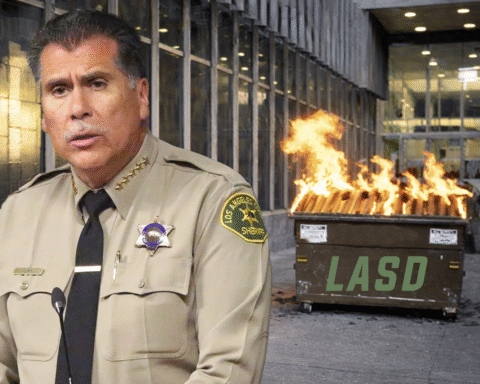By “LASD John Doe”
*This is OP ED was submitted by a member of the LASD sworn personnel with over 15 years of service.
Throughout my career in law enforcement, I have borne witness to profound transformations that have fundamentally altered the nature of policing. Among these changes, none looms more significant than the erosion of trust and respect that our community once held for law enforcement. This decline has, in part, been expedited by leadership that, at times, appeared disconnected from the evolving needs of our society.
In reflecting on my experiences, it is evident that each sheriff I have served under, including Sheriff Luna, brought with them a unique blend of strengths and shortcomings. While their dedication to our force is undeniable, it remains essential to remember the age-old adage: “The greater the power, the more dangerous the potential for abuse.” It is a reminder that even our most revered institutions, including law enforcement, are susceptible to the allure of power and influence.
In recent years, there has been a resounding call for transparency and criminal justice reform, with promises of restoring public trust and eliminating inequalities in our justice system. Paradoxically, these well-intentioned measures have unintentionally opened the door to escalating violence and emboldened criminals. The transparency meant to protect us has inadvertently exposed us to more significant risks.
It is disheartening to witness acts that once guaranteed incarceration now leading to minimal consequences, emboldening repeat offenders. This cycle of crime has become a distressing norm, overshadowing our collective efforts to maintain order in our communities.
The challenges we face today are multifaceted. Our adversaries are no longer limited to individuals; they encompass entire movements, ideologies, and deeply ingrained societal mindsets. In this ever-shifting landscape, the line between friend and foe has blurred, further complicating our mission.
In my tenure, I have been a firsthand witness to scenes that underscore the fragility of our society. Within this turbulent climate, a growing discord and skepticism toward law enforcement have emerged. Yet, every daybreak sees our deputies and officers unwavering in their commitment, donning their uniforms and standing resolute in the face of adversity.
While my disdain for the rogue elements within law enforcement aligns with that of many, I am equally fervent in my admiration for the countless officers whose daily acts of dedication often go unnoticed and uncelebrated. Their unwavering commitment should not be overshadowed by the actions of the few who stray from the path.
As I contemplate the future of law enforcement leadership, I cannot consider the need for a change of the guard. While I hold in high regard the seasoned veterans who have devoted decades to our force, the rapidly evolving landscape of policing necessitates fresh perspectives at the helm. The challenges we face today differ significantly from those of the past. The digital age, changing societal norms, and shifting political landscapes demand leaders who are finely tuned to the unique demands of our time. This perspective is not a slight against our long-serving officers; it is an acknowledgment that times have changed, and so too must our leadership.
My hope remains steadfast: that the scales of justice will once again find their equilibrium, championing mutual respect and responsibility. Until that day arrives, we shall persist in our duty, serving with honor, integrity, and an unwavering commitment to the communities we have solemnly sworn to protect. To achieve this, our leaders must learn to guide our rank and file while managing the expectations of their role as sheriff, all while remaining independent of undue political influence.





While this author and I share a similar amount of tenure within our ranks, my trust in those who are now leading our once great department has eroded significantly. With the majority of our tenure being under the watchful eye of federal investigations, county oversight, and now civilian oversight; our leaders are what’s left after over a decade of hemorrhaging.
Sadly, allegiances based on skewed priorities and unrealistic perceptions still remain. I have both seen and been through more than enough to know the right hand still has no clue what the left is doing. Our department, though dangerously understaffed, is too big to understand where its priorities should lie. Instead, our brass holds dear to memories of years gone by, many of which led us to where we are today.
Mistakes were made throughout our department, serious mistakes where the ramifications are just now coming to light. Sadly, those responsible will never be held accountable; and it’s left to us to make sense of what our department is becoming. We continue to be plagued by decisions made by people who have never done our job; yet feel they know how it should be done.
We (LASD) used to scour for leaders; now we are more into recruiting sheep; prioritizing education over maturity or experience. These efforts combined with the fact our own District Attorney is releasing wolves in droves is a recipe for disaster… a recipe in which few are even the least bit interested in. If you need proof of that, look at our recruiting goals… and how we consistently fall short of where we should be in efforts to combat unprecedented retirements, lateral transfers, and preparation for the 2028 Olympics.
True leaders are now reprimanded, or belittled because they don’t hold dear the tales of yesteryear which were filled with legitimate, bonafide injustices.